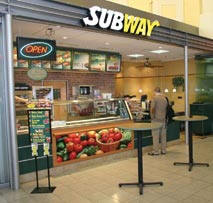 |


Franchise Sales
We represent a number of successful franchises and
can help you pick the right opportunity.
Franchises have a defined
business format that you can acquire, as long as you are
accepted as an operator and have an acceptable
commercial space from the viewpoint of the franchisor.
There are four types of franchise formats: Individual
Franchise, Multiple Franchise, Regional Franchise, and
International Master Franchise.
The phenomenal success and growth of the franchise
business model in the U.S. continues to create viable
business opportunities. Every ten minutes a new
franchise opens somewhere in the U.S.! Franchising
currently accounts for 40% of all retail sales in this
country, nearly $760 billion worth and growing.
Franchising is and continues to be the most successful
business model for distributing goods and services.
The undeniable worldwide
success of franchises, is due to the enormous advantages
it offers, consisting of a very stable model to expand a
business and penetrate markets.
It is also the safest and least risky way for an
entrepreneur to own a business, making him the
beneficiary of the synergies that franchising offers,
that is, to be part of a regional, national or worldwide
network. Statistics from the International
Franchise Association (IFA) demonstrate that in a period
of 5 years only 5% of the independently owned businesses
survive, while in the case of franchises this percentage
is of 95%. For this reason, franchises are considered to
be an investment form that helps minimize the risk of
entry into different types of businesses.
Franchise Statistics:
- Approximately 65 business
categories have been developed under this format.
- The average investment in
a franchised business is $85,000 dollars.
- Franchise contracts on
average are awarded for periods of between 5 and 10
years.
- Most franchises charge
between $15,000 and $25,000 dollars for their
franchise fee.
- Royalties for technical
assistance or support are around 5% of gross sales on
average and 2% for advertising fund.
- Most franchises offer the
recuperation of your investment in a period of
between 2 ½ to 3 ½ years.
- Worldwide, franchises grow
at an annual rate of between 10% to 12% in
franchised units.
-
The
U.S. Department of Commerce has published the
results of more than fifteen years of studies that
consistently verify that the statistical success of
franchises are higher than 95%.
- In the United States 1 out
of 12 businesses is a franchise and 1 out of 3
dollars that are spent on retail sales are in
franchised units.
What is a Franchisor?
It is an individual or company that possesses a
certain trademark and marketing technology (know-how) of
a product or service, who contractually cedes the rights
and transfers the use of these, as well as committing
himself to provide support and assistance in the
organizational, managerial, administrative and marketing
areas to the business of the franchisees.
What is a Franchisee?
It is an individual or company that contractually
acquires the right to market a product or service within
an exclusive market, utilizing the benefits that he gets
by using a certain trademark, and the support he
receives in the training and management of the business.
Advantages for the Franchisor
-
Strengthening and
preservation of his trademark.
- Low investment in the
expansion of his business.
- Better operative
efficiency in the new units directly operated and
supervised by the Franchisees.
- Increase in the coverage
and development of markets.
- Charge of an initial fee
for the rights to use a trademark (which allows him
to recuperate in the medium term the investment made
in the development of the franchise system).
- Charge of monthly
royalties based on the gross sales of the products
and services marketed through the awarded
franchises.
Advantages
for the Franchisee
- Reduction in the risk and uncertainty factors by
investing in a proven business format. According the
Dept. Commerce only five of every 100 franchises
fail.
- Permanent innovation in the methodological and
technological aspects of the business.
- Continuous support on the part of the
Franchisor.
- Documented training based on the Operative
Manuals.
- Access to administrative control systems and
evaluation of the performance of his point of sale.
- Training in the productive processes of products
and services.
- Sense of belonging to a consolidated network of
franchises.
- Access to promotion and advertising programs.
- Increase in his personal prestige by getting
involved in a successful business concept.
A checklist of items to know and research before
buying a franchise
- Name and address of franchisor
- Franchisors President and Sales Director
- Year established (+first year franchising)
and number of corporate employees
- Do they belong to the International
Franchise Association (IFA)
- Web Site and email contacts
- Total number of franchisees
- Number of locations owned by franchisor
- Length of franchise agreement and renewal
info
- Franchisee failure rate over the last few
years
- Is franchisee required to be an active
employee in the business
- Franchise fees - royalty, renewals,
development, advertising, transfer fees, etc.
- Demographic of franchisor's target customer
market
- Rules regarding franchisee territory and
number of locations in your local market
- Sales and Lead Generation - who is
responsible
- Advertising support from Franchisor - fully
sponsored, co-op, and what type (radio, TV,
newspaper, etc)
- Days and hours of operation
- Major competitors
- Major suppliers
- What does the franchisor provide vs. what
can the franchisee purchase on their own.
- Facility and Equipment requirements
- Does franchisor provide assistance with
location or equipment purchase and financing
packages
- Location, length, and costs of training
- Is there any on-going training or field
support offered
- Will franchisor allow existing franchise
agreements to be sold/transferred or will a new
agreement be needed.
- Many of these things will be covered in the
Franchisors UFOC
- Be sure to understand the difference between
a franchise and a business opportunity.
- Interview or speak with other franchisee's.
- Last but not least - like the purchase of
any other business... doing your homework or due
diligence is required.
|

